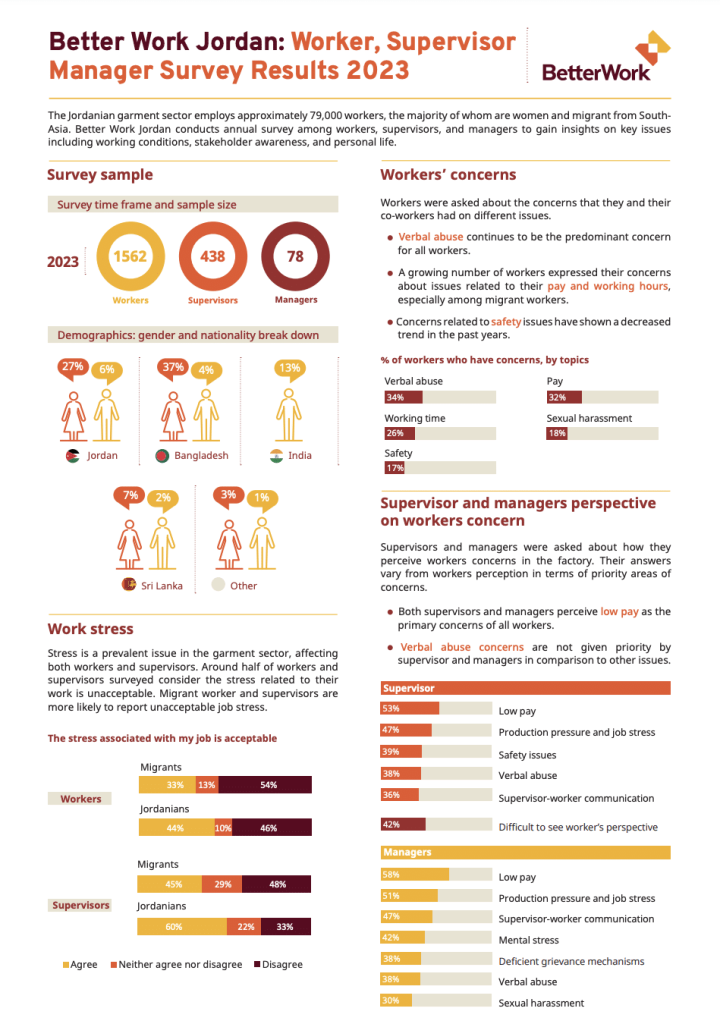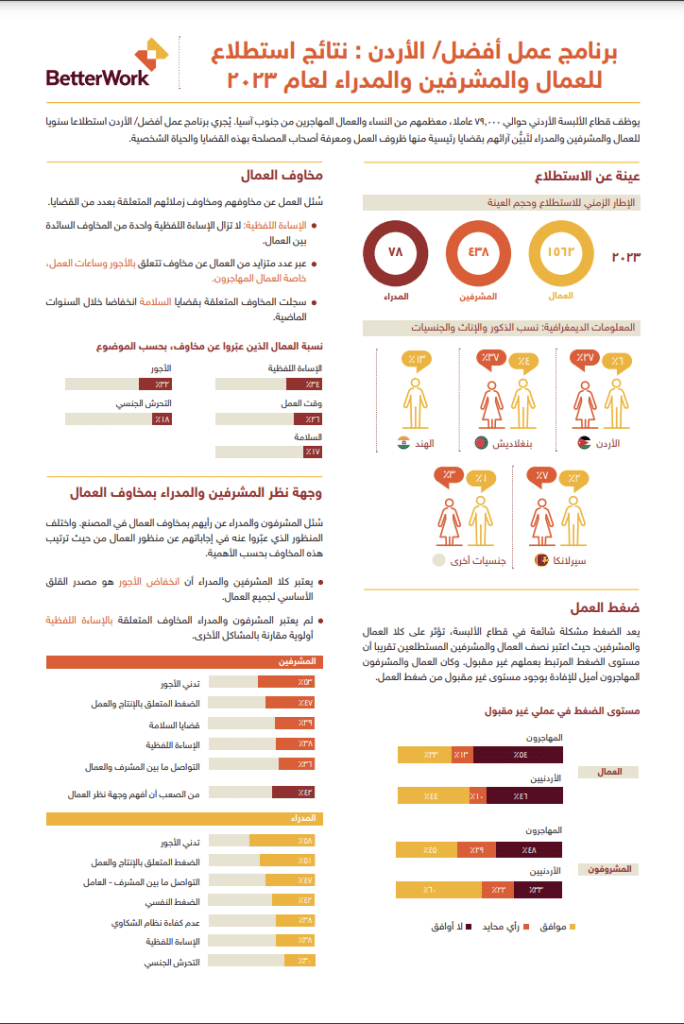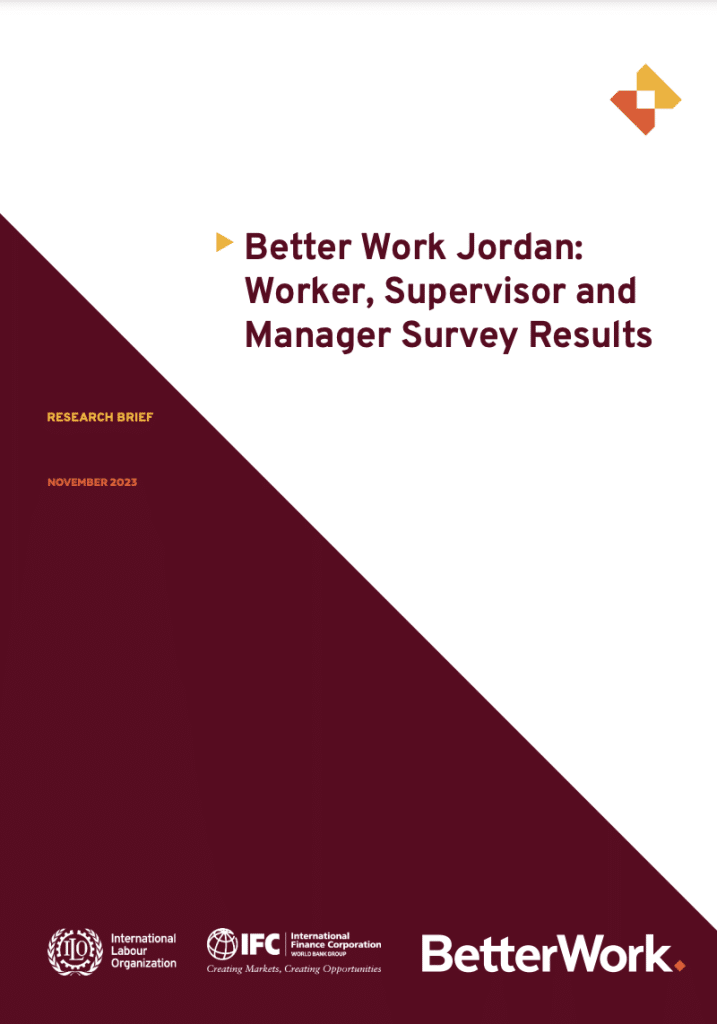Better Work Jordan (BWJ) has continuously invested in research activities to measure the effects of the programme. Since 2019, the programme has conducted a series of surveys among workers, supervisors and managers. The surveys are designed to provide up-to-date information on the opinions of the workforce, inform programmatic priorities as well as ad-hoc studies on the impact of the programme. The surveys gather data on demographic information, working conditions, workers’ life outside the factory, factors for business competitiveness and engagement with national stakeholders.
This Research Brief summarizes responses to key questions in the surveys implemented between 2019 and 2023. Aligned with the BWJ Phase Four strategy aimed at developing the capacity of national stakeholder, this brief presents the progress of stakeholders’ engagement over time. This information not only offers valuable insights into stakeholders’ readiness to fulfil their mandates but also identifies gaps where additional effort is required to ensure the sustainability of the Better Work programme in Jordan.
The latest survey covers a representative sample of approximately 2 per cent of the workers in the garment industry. Over the course of six weeks between July and August 2023, 1,562 workers from 78 different factories were surveyed. As in previous iterations, one manager from each factory was surveyed. BWJ introduced a supervisors’ survey since 2021 and surveyed 438 supervisors in 2023.
Findings
This brief focuses on workers overall job satisfaction, workers’ concerns at the workplace, workers’ perspectives on resources, and stakeholders’ engagement in the Jordanian garment sector.
Key findings include:
- The survey results remain overall consistent over the years with minimum variations, even as direct factory-level services by BWJ have gradually decreased.
- Efforts to enhance trade union capacity have led to improved union visibility among workers. Nevertheless, challenges persist, including gaps in union membership awareness, limited knowledge of Collective Bargaining Agreement (CBA), and workers’ unwillingness to approach the trade union to raise grievances.
- Workers lack familiarity with the Ministry of Labour and its services, highlighting the need for increased awareness and engagement for better access to available support mechanisms for workers.
- There is a noticeable decline in reliance on Better Work for enforcing labour standards in the sector, but this shift has not yet been entirely replaced by increased capacity among national stakeholders.
An infographic featuring key highlights of the Research Brief can be found here in English and Arabic.


